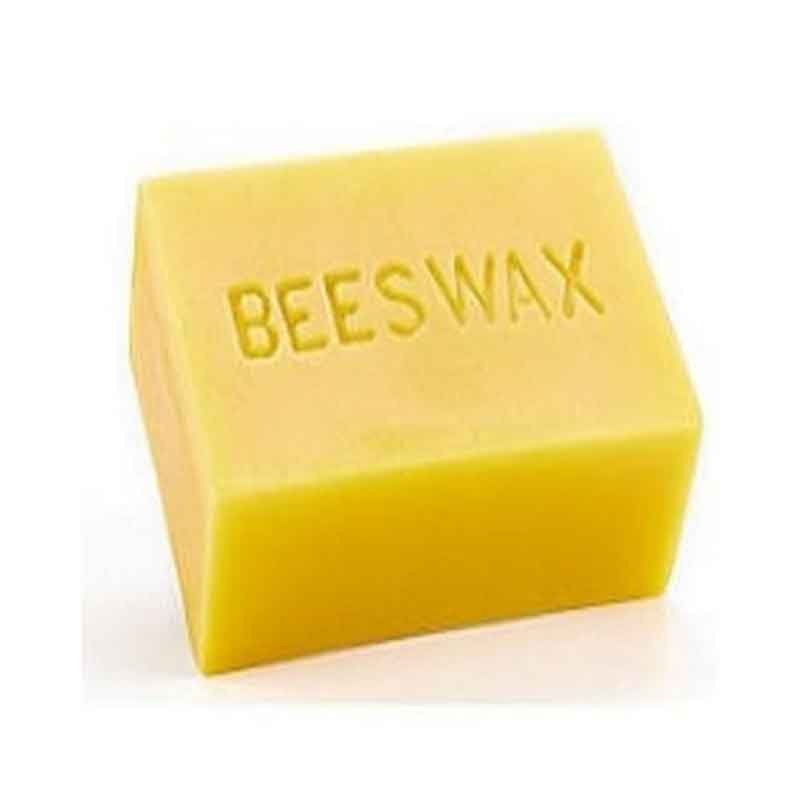Yellow organic beeswax is a natural wax produced by honeybees. It boasts a golden hue and a pleasant honey aroma. Renowned for its versatility and safety, this beeswax finds applications in various industries.
10 Key Points:
- Origin: Produced by honeybees as a building material for their honeycombs.
- Color and Aroma: Ranges from light yellow to a deeper golden shade, with a subtle honey-like scent.
- Natural and Sustainable: A renewable resource harvested from beehives without harming the bees.
- Water Repellent: Creates a waterproof barrier when applied to surfaces.
- Antimicrobial Properties: Possesses mild antibacterial and antifungal properties.
- High Melting Point: Melts at a relatively high temperature, making it suitable for various applications.
- Thickener and Emulsifier: Thickens liquids and helps blend oil and water-based ingredients in cosmetics and polishes.
- Biodegradable: Decomposes naturally and is considered eco-friendly.
- Non-Toxic: Safe for topical use and generally considered non-irritating for most people.
- Food Grade: Certain types of beeswax are certified for use in food applications, such as coatings for cheese and fruits.
Usage Recommendations:
- Candle Making: A primary ingredient in natural beeswax candles, known for their clean and long-lasting burn.
- Cosmetics and Salves: Used as a thickening and conditioning agent in lip balms, lotions, and salves.
- Polishes: Adds a natural shine and protects wood and leather surfaces.
- Food Wraps: Used as a sustainable alternative to plastic wrap for food storage.
- DIY Projects: Employed in various crafts and DIY projects due to its adhesive and waterproofing properties.
- Thread Treatment: Beeswax can be used to strengthen and water-resistant thread for sewing and other projects.
Cautions:
- Allergies: While uncommon, some people may have allergies to bee products, including beeswax. Conduct a patch test before using beeswax products on your skin.
- Dust Inhalation: Avoid inhaling dust from beeswax, especially when processing it.
- Heat Sensitivity: Beeswax can melt at high temperatures. Use caution when applying heat during crafting or cooking.
- Sun Exposure: Beeswax can degrade over time with prolonged sun exposure. Store beeswax products in a cool, dark place.
- Not Edible (unless food grade): Regular beeswax is not intended for consumption. Use only food-grade beeswax for edible applications.
If you'd like to know more about this chemical or need any analysis
report regarding this chemical then contact us support@echem.com.bd.
Yellow organic beeswax is a remarkable product derived from nature, offering a treasure trove of benefits. Here are 12 key features that highlight its unique properties:
- Natural Origin: Produced by honeybees as a building material for their honeycombs, ensuring a sustainable and ethical source.
- Distinctive Appearance: Characterized by a warm yellow color ranging from light to deep golden shades, often accompanied by a subtle honey aroma.
- Eco-Friendly: A completely natural and renewable resource, harvested from beehives without harming the bees themselves.
- Water Repellent: Creates a waterproof barrier when applied to surfaces, offering protection from moisture and the elements.
- Antimicrobial Properties: Possesses mild antibacterial and antifungal properties, making it a valuable addition to some topical applications.
- High Melting Point: Melts at a relatively high temperature (around 61-65°C), providing stability and making it suitable for various uses.
- Versatility in Form: Available in various forms like pellets, blocks, and flakes, allowing for easy incorporation into different projects.
- Textural Enhancer: Acts as a thickener and emulsifier, helping to thicken liquids and blend oil and water-based ingredients in cosmetics and polishes.
- Biodegradable Champion: Breaks down naturally after use, minimizing environmental impact and promoting sustainability.
- Safety for Skin: Generally considered non-toxic and non-irritating for most people, making it suitable for topical applications in cosmetics and salves.
- Food-Grade Applications: Certain types of organic beeswax are certified for use in food applications, such as coatings for cheese and fruits.
- Pleasant Aroma: The subtle honey-like scent adds a touch of natural fragrance to products where appropriate

Login To Comment